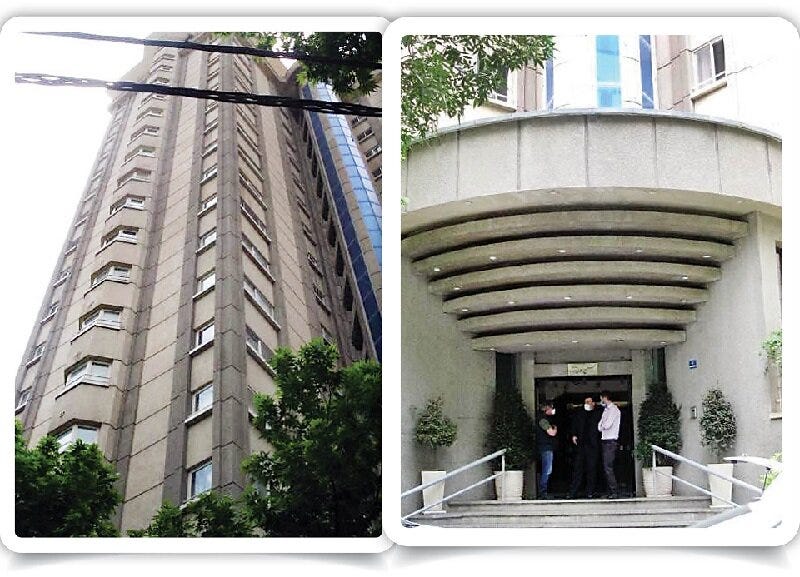When Neutrality Becomes a Target: How Tehran Is Eliminating Swiss Intermediaries
Switzerland is known the world over for its neutrality, its alpine calm, its quiet diplomacy. But in the heart of the Islamic Republic of Iran, Swiss neutrality may have become a fatal liability. A recent investigative report by Swiss public broadcaster SRF has ignited alarm in Bern, pointing to the possibility that at least three Swiss nationals—two of them diplomats—were assassinated by Iranian intelligence services. The pattern of deaths, disappearances, and alleged harassment suggests a broader campaign of intimidation, likely spearheaded by the Islamic Revolutionary Guard Corps (IRGC).
For decades, Switzerland has served as the official diplomatic channel for U.S. interests in Iran, acting as an intermediary since the U.S. severed ties following the 1979 Islamic Revolution. This “protecting power” status has placed the Swiss in a uniquely sensitive position—one that may now be proving too dangerous.
1. The Fall of Deputy Ambassador Sylvie Brunner (2021)
In May 2021, Deputy Swiss Ambassador Sylvie Brunner fell 17 stories to her death from a high-rise apartment in Tehran. Iranian authorities quickly labeled the case a suicide, citing mental health issues. But first responders on the scene reportedly contested that narrative, and were soon silenced. One official who questioned the story was later dismissed.
A suicide note was found—but it was unsigned. And when her body was returned to Switzerland, key organs—including the brain, heart, and kidneys—were missing, erasing the possibility of definitive forensic evidence. Her brother told investigators that Iranian agents had entered her apartment and left boot prints behind, a subtle but unmistakable threat. Despite these red flags, Swiss investigators closed the case in late 2024 due to "lack of evidence."
An Iranian intelligence defector now living in Germany told SRF that Brunner's death was "an operation by the Revolutionary Guards’ intelligence service." He added that she was perceived as a threat due to suspicions that she may have been collaborating too closely with the United States. "They view the Swiss embassy as a point of penetration for the Americans,” he said. “In Iran, they believe some embassy staff are working for the CIA."
2. A Military Attaché Mysteriously Falls Ill (2023)
In 2023, a Swiss military attaché stationed in Tehran—who SRF identified as a covert intelligence officer—was suddenly stricken by a severe and unexplained illness. He suffered major internal injuries, including trauma to the head and abdomen. He was flown back to Switzerland, where he later died. The IRGC, increasingly paranoid about infiltration and espionage, may have seen this operative as a liability—or worse, a double agent.
Swiss intelligence declined to comment on the matter. But in the context of Brunner’s death and other recent incidents, the attaché's demise raises urgent questions about a targeted campaign.
3. Embassy Staffer Attacked on the Street (September 2023)
Later that same year, a Swiss embassy employee responsible for visa processing was ambushed on his way to work. He was stabbed and shot in the hand—an extremely rare event in Tehran, where violent street crime is nearly nonexistent due to the regime’s strict policing. Iranian authorities acknowledged the attack but provided no further details. Whether the assailants were common criminals or operatives working at the regime’s behest remains unclear.
4. Swiss Tourist Dies in Detention (2025)
In an alarming extension of the trend, a Swiss tourist in his 60s was arrested in early 2025 after allegedly photographing a sensitive military site and collecting soil samples. Iranian officials accused him of espionage and refused Swiss diplomats any access to him. Two months later, he was reported to have died by suicide in custody. As with Brunner, when his body was returned to Switzerland, the autopsy results were not disclosed.
Swiss authorities now face an uncomfortable reckoning. For decades, their diplomatic corps has operated under the assumption that neutrality provides a kind of immunity. But Iran’s Islamic regime, particularly the IRGC and its intelligence arms, does not recognize such niceties. To them, Switzerland is a Western Trojan horse—hosting CIA channels, shuttling messages between enemies, and cloaked in a veil of deniability.
The pattern is becoming too clear to ignore. Diplomats falling from buildings. Intelligence agents collapsing from mysterious ailments. Tourists accused of spying. Embassy staffers stabbed in broad daylight. What began as isolated tragedies now reads like a coordinated campaign of violence.
The Islamic Republic is no stranger to extraterritorial assassinations. It has targeted dissidents across Europe—from the Netherlands to Germany to Turkey. Iranian embassies and diplomatic cover operations have been repeatedly exposed as staging grounds for terror plots and killings. The targeting of Swiss nationals appears to be the next evolution of this playbook: eliminate perceived enemies, even if they wear the uniform of a neutral power.
The deeper irony is that the same regime killing foreign diplomats in Tehran also sponsors protests in Western cities through front groups like the National Iranian American Council (NIAC) and other Iran-linked NGOs. These protests—many of them staged to appear progressive—are often populated by activists defending a regime that imprisons, tortures, and kills real protestors inside Iran.
The Swiss government has remained largely silent—perhaps wary of further antagonizing Tehran or admitting just how compromised their diplomatic posture has become. But silence is no longer an option.
As former intelligence officials and defectors such as former high-ranking intelligence official tied to Iran’s Ministry of Intelligence (VEVAK), Abol Ghassem Mesbahi come forward, and media investigations gain traction, Bern will have to confront a new and chilling reality: neutrality does not protect you when your enemy sees you as the enemy. And in the eyes of Iran’s Revolutionary Guards, every Western channel—especially one that speaks for Washington—is a target.
Switzerland, long viewed as the West’s quiet go-between, may now have to choose a side.







